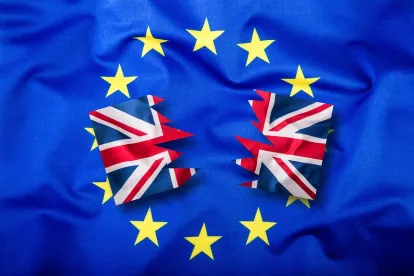On July 21, 2020, the Intelligence and Security Committee of Parliament published the Russia Report (the Report). The Report found that the UK was one of Russia’s “top Western intelligence targets” and that the UK government had thus far failed to investigate allegations of Russian interference, including potential involvement in the Brexit referendum. One of the underlying issues the Report identified was the lack of adequate legislative powers granted to the intelligence community. It brought attention to the Law Commission’s 2017 consultation, in relation to updating the Official Secrets Acts1, and the possibility of creating a new Espionage Act. The committee recommended the introduction of a new Espionage Act that would address the issue of “individuals acting on behalf of a foreign power and seeking to obfuscate the link”. While no details of how the UK will incorporate this recommendation, the Report made reference to the U.S. Foreign Agents Registration Act 1938 (FARA) and Australian equivalent. Given the explicit reference to FARA, it is very likely that a registration requirement for foreign agents is imminent, and the new requirement will be fashioned on the U.S. legislative framework. Additionally, the report highlighted the importance of updating the Computer Misuse Act, and encouraged the use of tools such as unexplained wealth orders to eliminate the proceeds of crime infiltrating the UK’s economic system.
The Purpose and Requirements of FARA and Implementation in the UK
FARA is a disclosure statute that requires “foreign principals”2, as well as companies and persons acting on behalf of foreign principals (“agents of foreign principals”[3]) in a political or quasi-political capacity to register with the US Department of Justice and publicly disclose details of the relationship. The disclosure includes the nature of the work in scope, fees, and materials in support of the work commissioned. FARA does not prohibit representing foreign interests in political activities but instead imposes disclosure obligations on such representations. The purpose of FARA being to ensure that the U.S. government and public are informed of the source of information (i.e., make an informed decision regarding whether it is propaganda) and identify persons attempting to influence public opinion, policy and laws.
There is no minimum threshold for activities to qualify for registration; a single meeting or email may trigger FARA. Key activities to consider include:
-
Soliciting or dispensing money or anything of value within the U.S. for or in the interest of a foreign principal;
-
Acting as public relations counsel, including informing or advising a foreign principal in any matter pertaining to its political or public interests or policies;
-
Acting as a political consultant, including informing or advising a foreign principal with reference to the domestic or foreign policies; or
-
Engaging within the U.S. in political activities, which are any activities intended to influence government agencies or officials – or any section of the public regarding U.S. domestic or foreign policy.
Due to the broad scope of the legislation a number of commercial enterprises may be captured. There are therefore some exemptions including the (i) commercial; (ii) predominant purpose; (iii) academic; and (iv) lawyers exemptions that are likely to be considered when structuring any new UK requirement.
Other exemptions from FARA may include foreign influences which are already captured by current legislation. One such example includes lobbying, which is currently regulated in the UK under the Transparency of Lobbying, Non-Party Campaigning and Trade Union Administration Act 2014. Pursuant to the current laws it is an offence to lobby[4] government ministers or senior government officials if an individual or organization is not registered accurately and completely with one of three professional bodies[5]. Additionally, ministers are required to register and provide details of salaries, fees, gifts and other compensation received as a director, employee or in any other capacity in relation to an engagement outside their role with the government. Corporate transactions may also soon be scrutinized as the National Security and Investment Bill may come into force as early as 2021. The legislation proposes powers for the government to review transactions, where there is foreign direct investment, for national security risks. The current focus on UK policies being influenced by countries such as Russia and China may well lead to further targeted legislation in this area.
Failure to register foreign agents pursuant to FARA, where no exemptions exists, could result in civil and criminal penalties, and it is likely similar penalties will be considered for any future UK legislation.
Implementation in the UK
FARA garnered significant interest in the aftermath of the 2016 U.S. election with a high profile prosecution of a prominent lawyer who served two Democratic presidents. The matter spun out of the former special counsel Robert Mueller’s Russia investigation. Recent enforcement and subsequent guidance issued by the Department of Justice’s FARA Unit will provide the UK government with a strong foundation to build and adapt a similar legislative framework.
Since the Report was published, Prime Minister Johnson as well as a number of MPs have expressed their support for additional powers to be granted to the intelligence community and the need for a foreign agent’s register to be a priority. This update comes hot on the heels of the UK’s implementation of autonomous sanctions against Russian officials involved in human rights abuses as well as strengthened legislation in relation to curbing economic crime.
1 Official Secrets Act 1911, 1920 and 1939
2 “Foreign officials” would be foreign governments, officials, and political parties as well as foreign individuals and business enterprises (i.e., businesses with principal place of business in a foreign jurisdiction).
3 “Agents of foreign principal” encompass those who engage in a range of activities directed at influencing U.S. policy or public opinion on behalf of foreign clients, as well as those who otherwise seek to advance foreign political interests in the U.S.
4 While the definition in the statute is quite narrow, the professional bodies regulating the registers adopt a broader definition that includes activities carried out for the purpose of influencing the government or advising others on how to do the same.
5 Chartered Institute of Public Relations (CIPR), the Public Relations Consultants Association (PRCA) and the Association of Professional Political Consultants (APPC)





 />i
/>i

